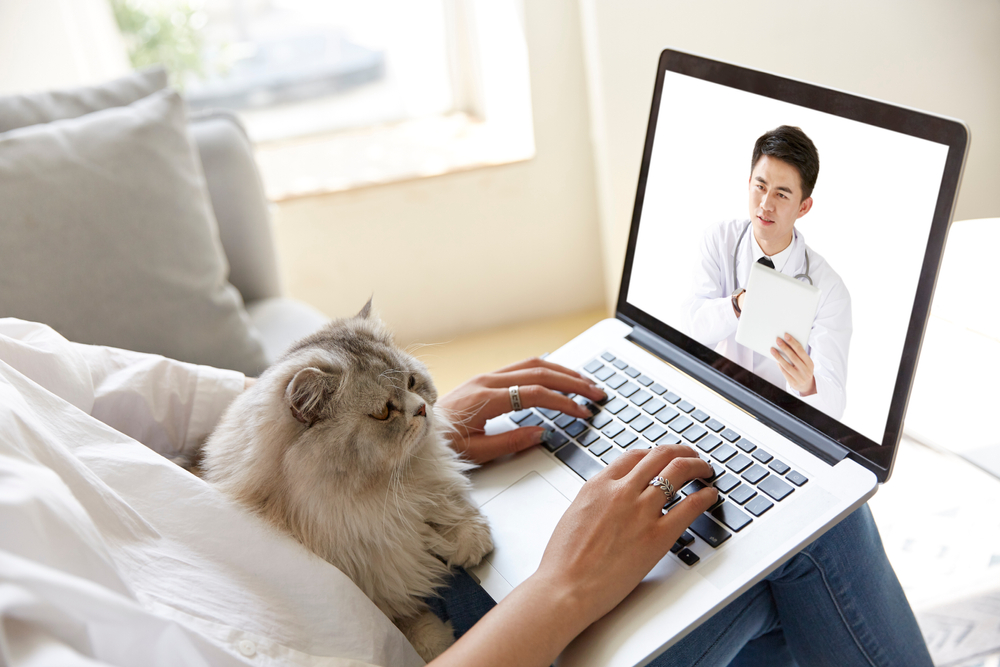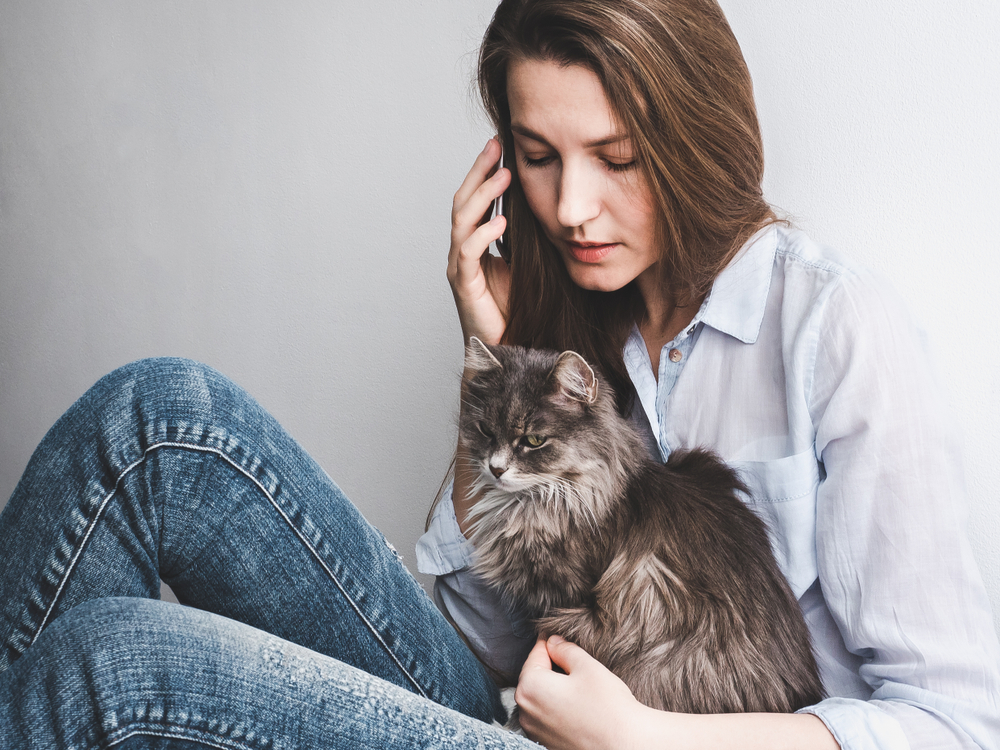It’s almost a cliché. You’re traveling and, seemingly out of nowhere, your pet gets sick or injured. It seems farther and farther, the more inevitable its occurrence. We don’t want to think about these things happening. However, it is always better to be prepared. Sadly, minutes can make the difference between a poor and positive prognosis, and knowing you’re prepared for anything will also give you peace of mind.
Vets appreciate your efforts to get help or advice quickly. Any delay in treatment can slow down or complicate recovery. Of course, not everything is an emergency. A veterinarian can reassure you when dealing with any unknowns, and they have the experience to make an accurate assessment. But what’s the best way to contact a vet if you’re on the go? Our guide covers ways you can get good information without relying on Google.


5 Ways to Talk to a Vet While Traveling
1. Your Vet’s Online Platform
One of the positive outcomes of COVID-19 is the pivot towards online offerings, whether takeout, grocery delivery, or veterinary advice. People realized the convenience, and businesses realized they could save money in various areas. It’s a win-win for pet owners if your vet offers these services, so we suggest asking about the options your clinic offers before leaving town.

2. Your Pet Insurance Chat
An online chat platform with a veterinarian is a popular perk with many pet insurance companies. Many offer this service 365 days a year, 24/7. We think this is a great selling point if you’re comparison shopping.
To be prepared, you should check any limitations on this service before leaving town. Keep in mind that online chats aren’t always an alternative to a hands-on office exam, though.
3. PangoVet
PangoVet is a new online veterinary consultation service where you can talk to a licensed veterinarian about your pet’s issues. The site charges a nominal fee for a 20-minute video call. You don’t have to worry about getting your kitten in a carrier and taking them to the clinic. Instead, you can answer your questions in the privacy of your home.
PangoVet is not a substitute for regular exams or emergencies. However, you can get accurate veterinary information and advice when you need it. They will provide detailed instructions for follow-up care. Appointment slots are not yet 24/7 as this is a newer service. However, it is the reimagined face of veterinary care that reduces stress for you and your pet.
💛 😺 Talk to a Vet Online From the Comfort of Your Couch!

If you need to talk to a vet but can’t get one, go to PangoVet. This is an online service where you can talk to a vet online and get the personalized advice you need for your pet — all at an affordable price!
4. The Local Emergency Veterinary Clinic
We suggest determining the location and contact information of the nearest emergency vet clinic before leaving town. Check the business website for any important information. You can also visit the Veterinary Emergency Group website if you need to quickly find a location. You can find a clinic near where you are staying for the fastest service.
5. Animal Poison Control
You never know when your cat is going to get into something they shouldn’t, because some cats are just as curious as dogs when it comes to putting things in their mouths. If you find yourself in this situation, it’s best to call Animal Poison Control to get professional advice.
Immediate action is critical in many cases. Remember that many pets are like children who don’t know any better. You must keep your companion animal out of harm’s way. If something happens, you should know what to do, starting with contacting professional help. It is worth noting that the call is not free, although some pet insurers will cover these costs.



Preparing Your Pet for a Trip
A vet can only offer the best and most appropriate advice for the information you provide. Make it easy for anyone unfamiliar with your pet by having their complete medical history with you. That includes details about any recent tests or medication. While the results may not mean much to you, a professional can get a lot out of them.
You should also make sure your pet is up to date on any vaccinations or tests before traveling. Stress can make them more vulnerable to preventable diseases. We also recommend getting your cat up to date on their vaccinations, as well as getting microchipped if you haven’t already.
We also recommend having your veterinarian’s contact information in case something happens while you’re traveling. This will make it easier to let them know what happened so they can seamlessly follow up with any necessary aftercare.


Conclusion
We strongly encourage you to contact a veterinarian if anything, whether illness or injury, occurs while traveling. Getting accurate information from a professional is better than relying on unverified intel from a website or blogger in a last minute, rushed search. Fortunately, it’s easy to be prepared, whether it’s knowing contact information or installing an app to connect you with the right people.
It’s not too much to know what to do in an emergency. Emotions often run high when pets are involved. Do yourself a favor and add this task to your trip prep to-do list. Know who to contact if something goes wrong, as information at your fingertips will save you time and unnecessary stress.
Featured Image Credit: Iryna ImagoS, Shutterstock


